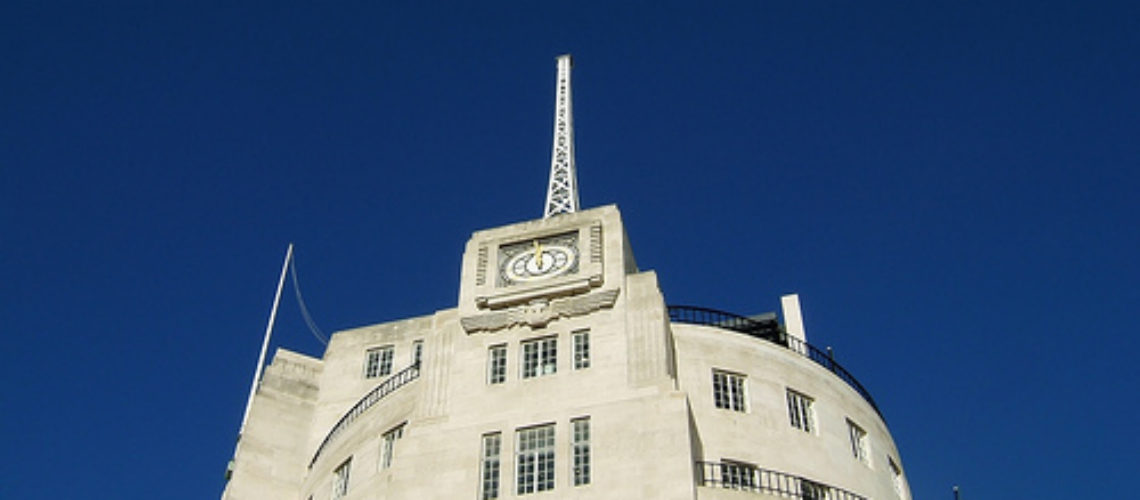A MUCH-trumpeted BBC-ordered report into the Corporation’s coverage of economics by erstwhile BBC presenters Andrew Dilnot and Michael Blastland – who, it is said, are economic ‘experts’ – has been published after almost a year in gestation.
The 50-page document was commissioned as part of Director General Tim Davie’s desperate attempt to prove that the Corporation is impartial and thereby avoid any significant changes being made by the Department for Digital, Culture, Media and Sport (DCMS) in the BBC’s mid-term review, due in May.
The BBC are very good at wasting licence fee income – witness the millions spent in their quest of diversity and support of propaganda exercises such as their membership of the sinister Trusted News Initiative – and this is another prime example of money down the drain.
Reading it confirms that while Dilnot and Blastland dish out some stinging negative observations, they are BBC sycophants. Further, the vast majority of the 50 or so people they consulted in preparing their report also inhabit the BBC echo chamber of liberal-left bias. The list is here. Fewer than ten could be seen as leaning towards alternative views.
The conclusions of the report include:
· Many BBC journalists lack understanding of basic economics;
· Output suggests too much that public spending is good;
· Reporters should exercise more caution in making sweeping statements such as that governments ‘will have to’ (carry out prescribed tasks);
· Output does not make clear that fiscal political decisions are also political choices;
· The perspectives of low-paid people are under-reported;
· Contributors do not come from a wide enough spectrum of opinion and interests;
· Output does not give enough information to those who are poorly informed and did not understand fiscal stories.
It has not been disclosed how much the authors were paid for their efforts, but these are all arguably subjective judgments which anyone could arrive at in a matter of days through watching and listening to BBC programmes. Dilnot and Blastland claim to have combed through 11,000 items to reach their ‘expert’ conclusions, but they at no point provide sufficient evidence to justify claims of objective superiority.
Further, it is clear from their methodology (outlined in an appendix) that they regard properly detailed analysis of content as ‘useless’.
Their report can thus also be seen as an exercise in laziness. On the subject of whether economics coverage might be skewed politically, they say: ‘We didn’t find evidence that BBC coverage of fiscal policy is overall too left or right – because we can’t. Others might think the answer obvious, we do not. We doubt the methods available are equal to the task, not with any statistical robustness. These methods would, without a truly vast amount of time and expense, themselves be at risk of bias. In any case, we think it more useful if we’re specific.’
With an approach like this, the BBC will wriggle off the hook of any of the criticisms contained in the report and will carry on regardless. The process is already under way. The official BBC Board response is: ‘We note that the reviewers found widespread appreciation for BBC coverage of tax, public spending, debt and borrowing and they conclude that they did not find evidence of political bias in this output. However, they also concluded that significant interests and perspectives in these areas could be better served by BBC output and the review as a whole provides clear indications for how we can improve editorial standards and audience impact as a result.
‘We have asked the Director General and his Executive team to address the issues presented in this review and to return to the next Editorial Guidelines and Standards Committee of the Board (EGSC) with a proposed action plan to fully address these challenges. We will then review that plan at the following Board meeting before implementation. We have also asked the EGSC to consider the lessons learned from this thematic review to inform our approach to the next reviews,’
In other words, move along, nothing to see here. The BBC commissioned the report and are deigning to pay some lip service to the conclusions. By contrast, they have never considered in detail the much more thorough work carried out by News-watch.

